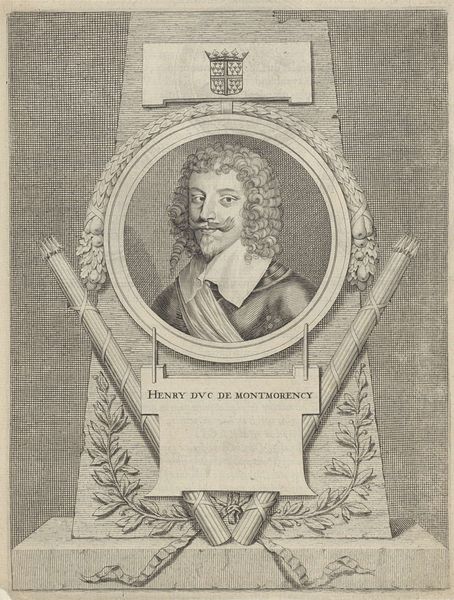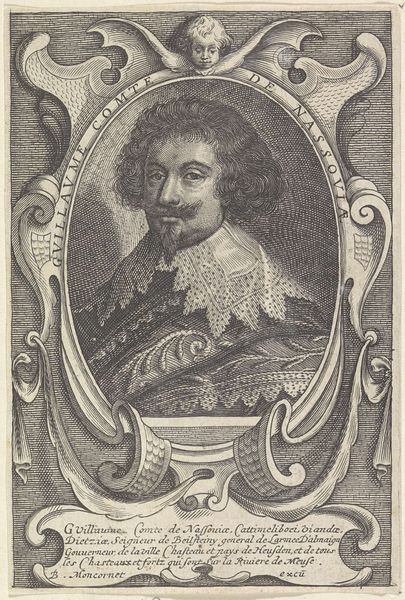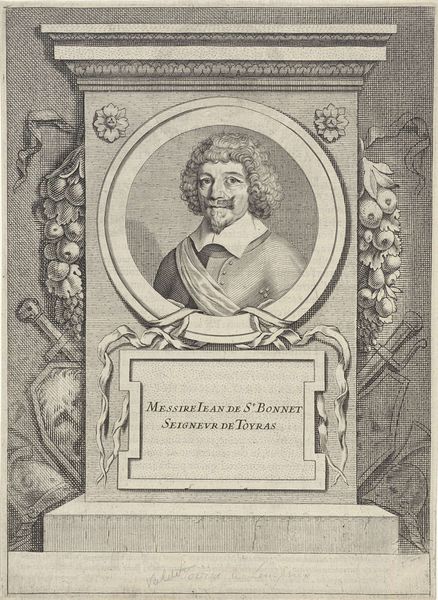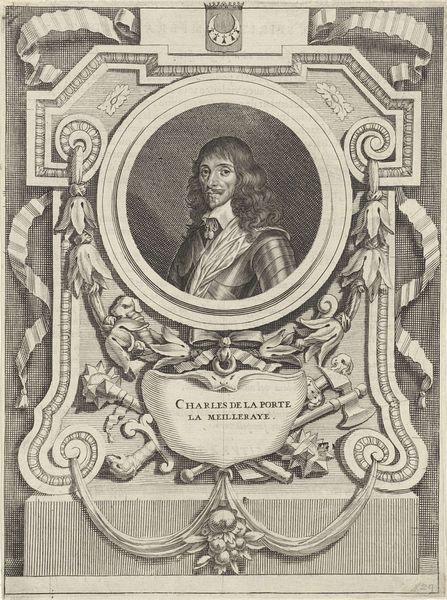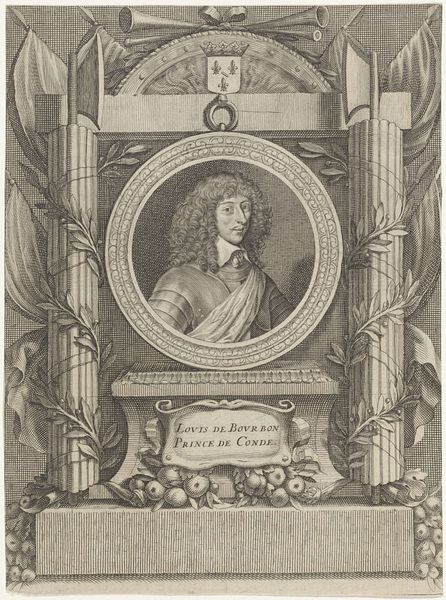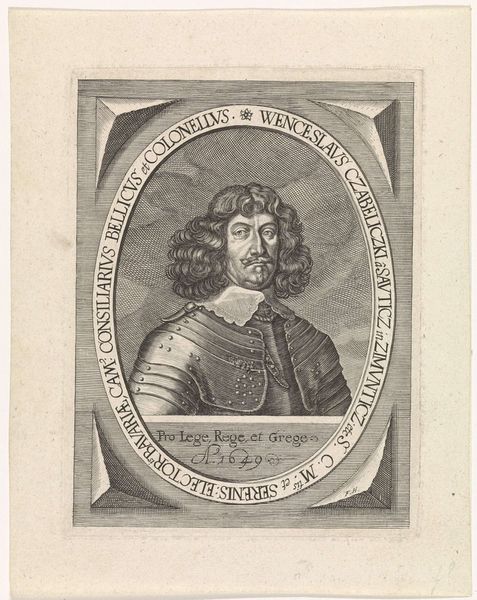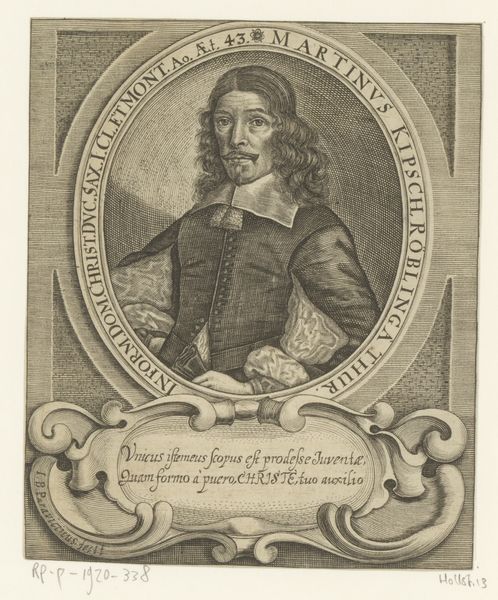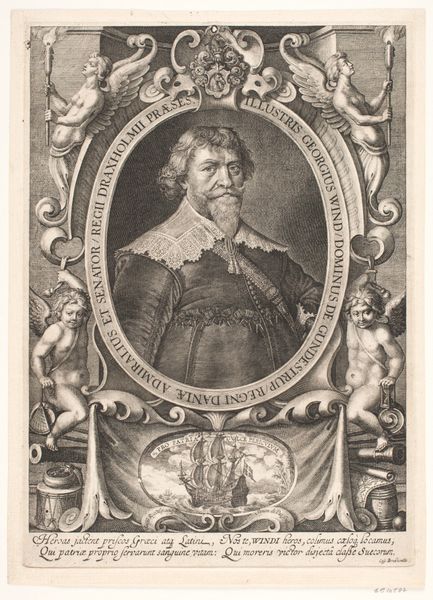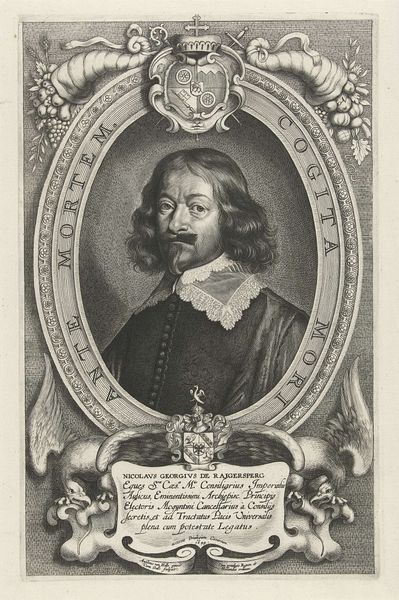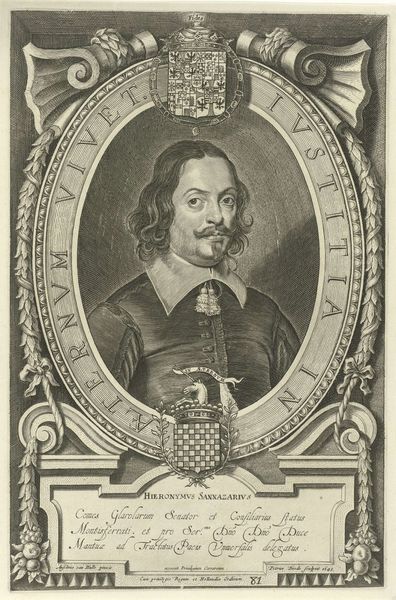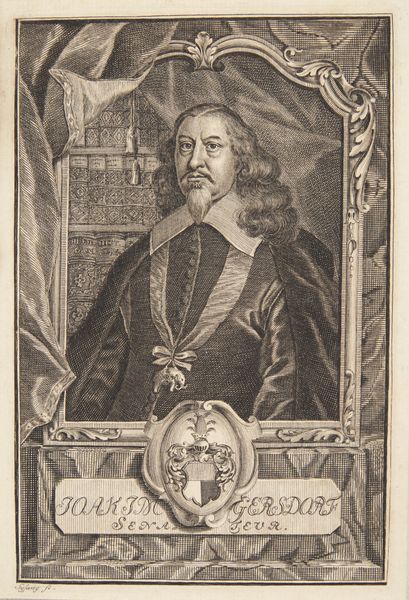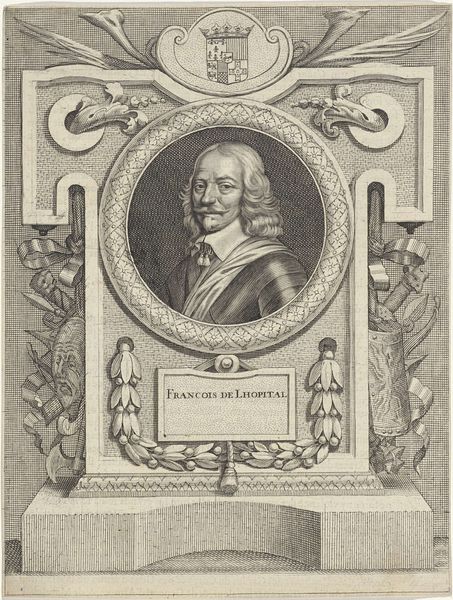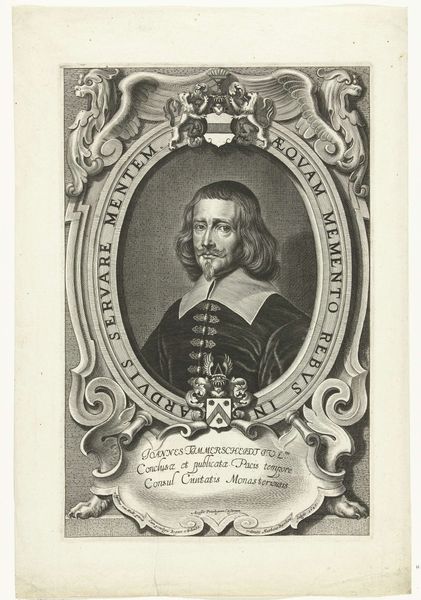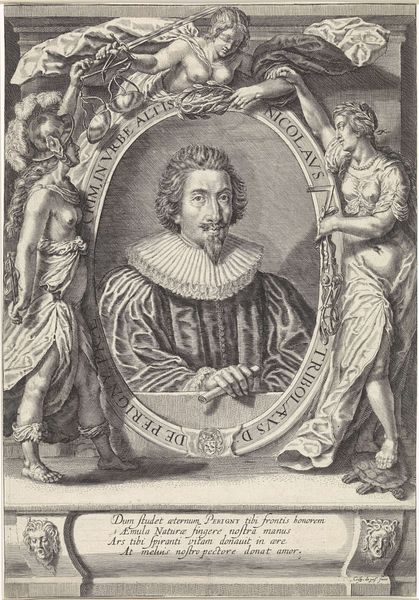
#
natural stone pattern
#
old engraving style
#
highly detailed
#
unrealistic statue
#
limited contrast and shading
#
golden font
#
pencil art
#
intricate and detailed
#
historical font
#
columned text
Dimensions: height 269 mm, width 202 mm
Copyright: Rijks Museum: Open Domain
Curator: The artwork we're observing is a portrait of Henry II d'Orléans, Duke of Longueville, crafted in 1649 by Johannes Valdor. The style evokes that familiar gravitas of official portraiture during the mid-17th century. Editor: Right, right. The immediate feeling is, well, constrained. There's so much...stuff. Floral garlands, heavy drapes suggested in the etching, and the Duke himself feels a little lost within it all, doesn't he? Like a prize meticulously wrapped and tied with ribbons. Curator: The ornate details around the subject echo the status of nobility; the cascading flora could symbolize abundance and divine blessing, standard symbolic gestures intended to validate the sitter's importance and genealogy. Editor: Yes, it's all carefully arranged messaging. His armour hints at military strength. But that melancholic gaze... he seems to be looking beyond the fanfare, perhaps questioning it, or weary of it? I get the sense there's a complexity beneath the surface here, doesn’t quite square with all the bravado. Curator: That duality is common. Consider that public images often served very precise propaganda roles. The sombre tone you pick up on might reflect genuine character but could also represent humility – a virtue frequently feigned to appear pious in the eyes of the court. Or, it could subtly convey intelligence; that the Duke sees and understands the world as perilous and weighty. Editor: Clever observation. Looking closer, I'm also intrigued by the border itself; the geometric hatching gives an almost vibrating energy, a subtle tension surrounding the static figure. The overall craftsmanship seems quite amazing. How do you see this piece fitting into broader movements of the era? Curator: Valdor's skills were highly prized and were influenced by emerging notions about the monarch as the centre of power, of order and sophistication against inherent instability. These portraits played a role in cementing authority. He worked in that sweet spot. Editor: Well, seeing past the frills, it makes me appreciate this fellow, caught in his moment. Thank you. Curator: An intriguing journey, indeed, highlighting both calculated image and perhaps something more sincere buried within.
Comments
No comments
Be the first to comment and join the conversation on the ultimate creative platform.
